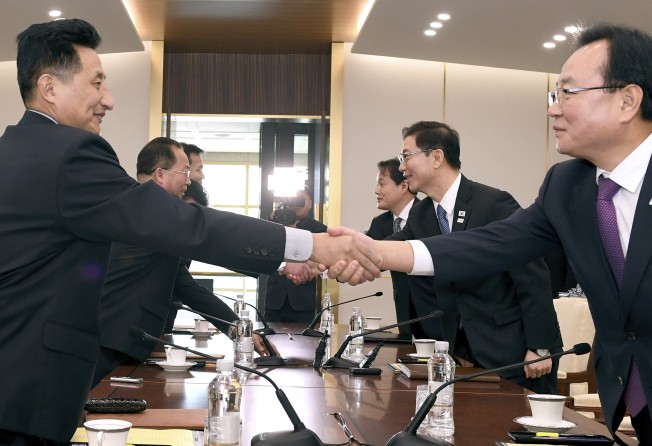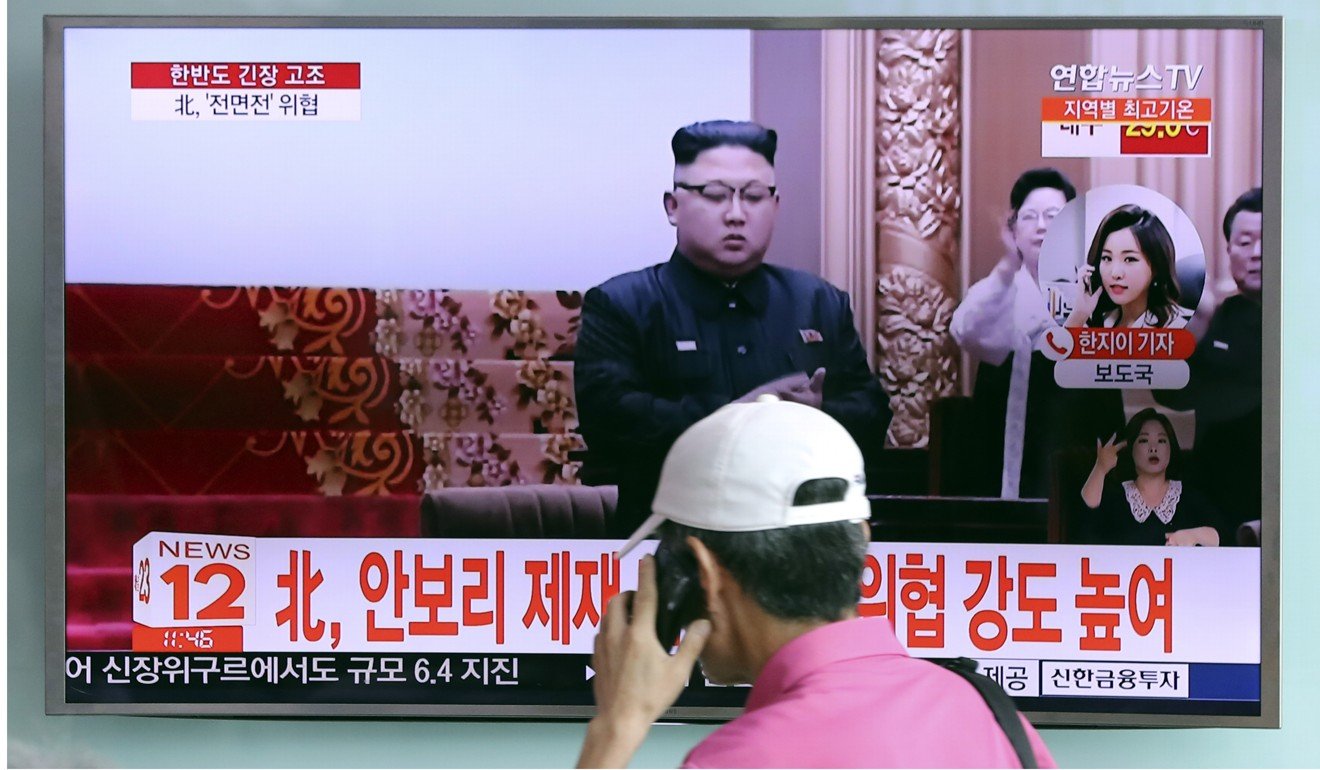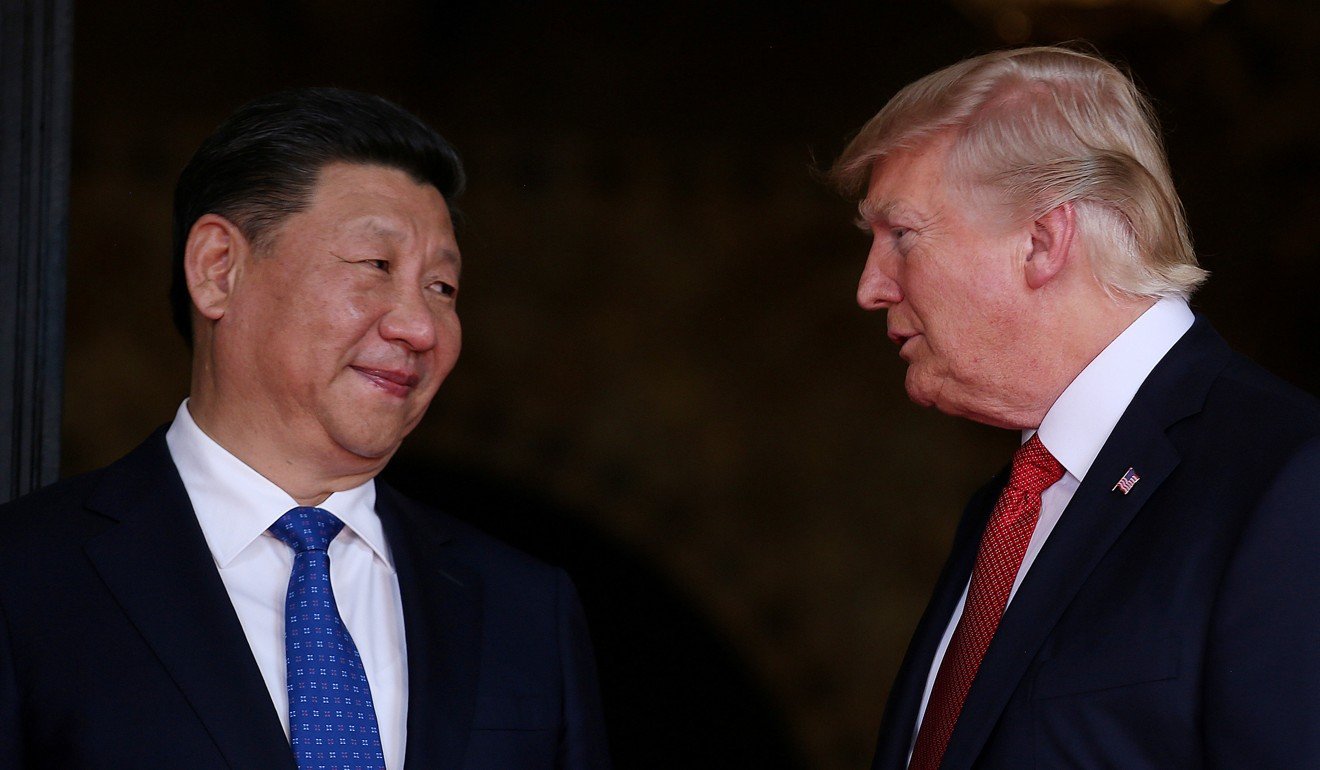Does North Korea’s Olympic overture prelude talks with the US?
David Zweig says North Korea’s leadership played a smart move before the Olympics, exposing rifts among and within the US, South Korean and Chinese governments. As a result, chances of dialogue with the US have increased

In the view of President Donald Trump, Kim Jong-un is “a pretty smart guy”. In April 2017, Trump said: “At a very young age, he was able to assume power. A lot of people, I’m sure, tried to take that power away, whether it was his uncle or anybody else. And he was able to do it. So obviously, he’s a pretty smart cookie.”
So Trump should not have been surprised when Kim, after a year of sabre-rattling, carried out an “Olympic overture” by asking to attend the Pyeongchang Olympics in South Korea. In one move, Kim shifted the short-term dynamic from a focus on the North as villain to the North as a long-lost friend.
South Korea’s President Moon Jae-in worried Kim would disrupt the Olympics, a receding possibility with the current negotiations about the North’s participation. In fact, Moon is so thrilled that the two sides have begun detailed discussions about the North’s participation that he is granting the North special permission to submit a late application for several of its athletes, and will publicly demand that the North put its nuclear arsenal on the table as the quid pro quo for attending the games (but privately acquiesce to its refusal).
Kim’s Olympic overture has intensified the US-South Korea divide, encouraging the dovish Moon to push the United States to put their joint military exercises on hold. These drills are highly provocative to the North, who see them as preparation for an invasion. Putting them on hold, even temporarily, is an important concession to Kim Jong-un.
Kim’s Olympic overture helps Moon, who faces great scepticism in the South about his policy towards the North. Hardliners will say they have seen all this before; every “soft-liner” who takes the reins of the South Korean presidency believes he can bring peace to the Korean peninsula. But such efforts have failed time and again. In fact, the Olympic overture reinforces the position that the sanctions were biting the North right where it hurts – otherwise, why did Kim offer to go south?
North Korea to send athletes to Winter Olympics in South Korea
Hardliners also mistrust South Korean advocates of engagement. They remember that in 2000, former South Korean president Kim Dae-jung secretly paid North Korea hundreds of millions of dollars, with the help of a branch of the Hyundai Group, to create the facade of improved ties. It helped Kim Dae-jung win the Nobel Peace Prize in 2000.
Kim’s overture may vindicate Moon in the eyes of the 20-somethings in the South who harbour no yearning for reunification. In the past, the possibility of talks would have sent thousands of young South Koreans onto the streets of Seoul and up to the demilitarised zone, clamouring for better North-South ties. But today South Korean youth don’t care about reunification with the North, whose value system they totally reject. They prefer their lives in the South and worry more about how reunification with a bankrupt North would damage the South’s economy than about threats of war, something they have grown up with.

Seoul faces challenge of turning inter-Korean thaw into longer-term detente ahead of Winter Olympics
Kim’s overture may intensify splits in the US administration between hardliners, like the pugnacious president, along with his hawkish UN ambassador Nikki Haley, and the more diplomatic Secretary of State Rex Tillerson, who believes the US should talk to the North with few conditions. Observers have commented that, by going south, Kim may actually get talks with Washington.
Finally, Kim’s overture is music to the ears of China’s President Xi Jinping. Talks between the two adversaries relieve US pressure on him to intensify sanctions on the North.
China has two fears: first, that a full cut-off of energy to the North could destroy a buffer state that has kept the US military off China’s border. Mao Zedong entered the Korean war in late 1950 to push US forces back from the Yalu River, resulting in hundreds of thousands of Chinese soldiers killed or wounded. The Americans may promise to stay in the South should the North collapse, but China isn’t buying this line after the US reneged on its promise to Russia, in the 1990s, not to expand Nato. Second, Kim’s overture decreases the likelihood of a regional military confrontation, which would greatly disrupt Xi’s “Chinese dream” of making China a global power by 2050.

Where will the inter-Korean talks go? History suggests not too far. One can play an overture for only so long before you have to delve into the heart of the performance. But Kim knows nuclear weapons have brought him worldwide attention and probably sustain him in power. The demise of both Libya’s Muammar Gaddafi, who gave up his nuclear weapons, and Iraq’s Saddam Hussein, who never had them, indicate that without the capability to strike the US, he and his regime are doomed. Now, safely ensconced in his hermit kingdom, Kim feels he can play a new tune to which the world may listen. According to some South Korean diplomats, as much as the Trump administration shouts about “rocket man”, it is indeed the rockets, and a little gutsy diplomacy, that could turn the overture into a US-North Korea duet.
Dr David Zweig is chair professor in the Division of Social Science and director of the Centre on China’s Transnational Relations, at the Hong Kong University of Science and Technology